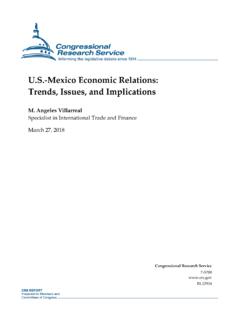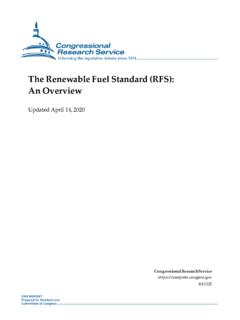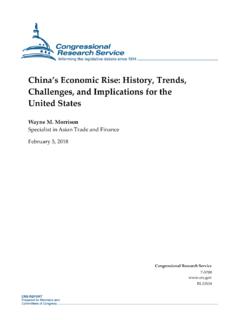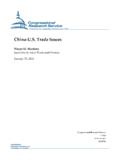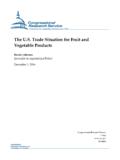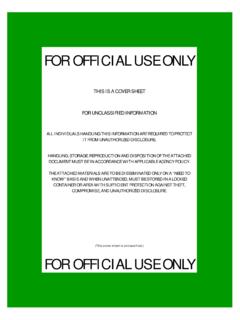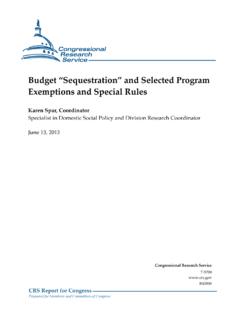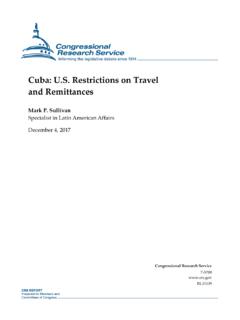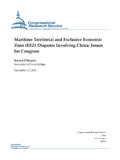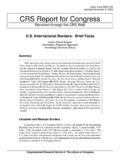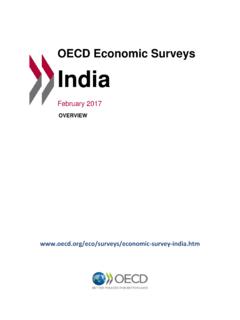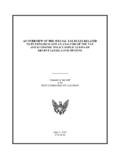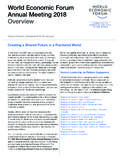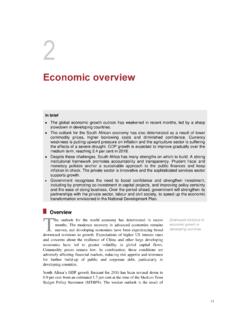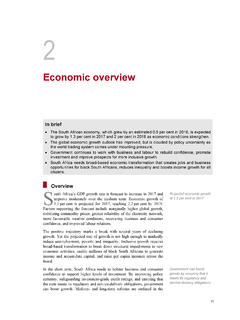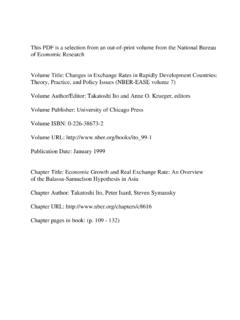Transcription of Stealing Trade Secrets and An of - Federation of …
1 Stealing Trade Secrets and economic Espionage: An overview of the economic Espionage Act Charles Doyle Senior Specialist in American Public Law August 19, 2016 Congressional Research Service 7-5700 R42681 Stealing Trade Secrets and economic Espionage Congressional Research Service Summary Stealing a Trade secret is a federal crime when the information relates to a product in interstate or foreign commerce, 18 1832 (theft of Trade Secrets ), or when the intended beneficiary is a foreign power, 18 1831 ( economic espionage). Section 1832 requires that the thief be aware that the misappropriation will injure the secret s owner to the benefit of someone else. Section 1831 requires only that the thief intend to benefit a foreign government or one of its instrumentalities. Offenders face lengthy prison terms as well as heavy fines, and they must pay restitution. Moreover, property derived from the offense or used to facilitate its commission is subject to confiscation.
2 The sections reach violations occurring overseas, if the offender is a United States national or if an act in furtherance of the crime is committed within the United States. Depending on the circumstances, misconduct captured in the two sections may be prosecuted under other federal statutes as well. A defendant charged with Stealing Trade Secrets is often indictable under the Computer Fraud and Abuse Act, the National Stolen Property Act, and/or the federal wire fraud statute. One indicted on economic espionage charges may often be charged with acting as an unregistered foreign agent and on occasion with disclosing classified information or under the general espionage statutes. Finally, by virtue of the Defend Trade Secrets Act ( 114-153), Section 1831 and 1832 are predicate offenses for purposes of the federal racketeering and money laundering statutes. 114-153 (S. 1890) dramatically increased EEA civil enforcement options when it authorized private causes of action for the victims of Trade secret misappropriation.
3 In addition, the EEA now permits pre-trial seizure orders in some circumstances, counterbalanced with sanctions for erroneous seizures. This report is available in an abridged version, without footnotes or attribution, as CRS Report R42682, Stealing Trade Secrets and economic Espionage: An Abridged overview of the economic Espionage Act. Stealing Trade Secrets and economic Espionage Congressional Research Service Contents Introduction .. 1 Stealing Trade Secrets .. 2 Elements .. 2 Substantive Offense .. 3 Attempt .. 8 Conspiracy .. 8 Consequences .. 9 economic Espionage .. 9 Foreign Beneficiary .. 11 Common Procedural Matters .. 11 Protective Orders .. 11 Extraterritoriality .. 12 Prosecutorial Discretion .. 13 Related Offenses .. 13 Civil Remedies .. 15 Private Cause of Action .. 15 Pre-Trial Seizure .. 15 Damages and Equitable Relief .. 16 Contacts Author Contact Information .. 17 Stealing Trade Secrets and economic Espionage Congressional Research Service 1 Introduction The economic Espionage Act (EEA) outlaws two forms of Trade secret theft: theft for the benefit of a foreign entity ( economic espionage) and theft for pecuniary gain (theft of Trade Secrets ).
4 1 Under either proscription, its reach extends to theft from electronic Individual offenders face imprisonment for up to 15 years for economic espionage and up to 10 years for Trade secret Individuals also may incur fines of up to $250,000 or twice the loss or gain associated with the offense for Trade secret For economic espionage, they face fines of up $5 million or twice the loss or Organizations are fined more severely. They can be fined up $5 million, twice the loss or gain associated with the offense, or three times the value of the stolen Trade secret, for Trade secret For economic espionage, the fines of organizations jump to a maximum of the greater of $10 million, three times the value of the Trade secret, or twice the gain or loss associated with the A court may assess the same sanctions for attempt or conspiracy to commit either offense, or for aiding or abetting the completed commission of the either A sentencing court must order the defendants to pay victim restitution, and the government may confiscate any property that is derived from or used to facilitate either The government may seek to enjoin violations,10 and, by virtue of amendments in the Defend Trade Secrets Act of 2016,11 victims may be entitled to sue for double damages, equitable relief.
5 And attorneys Conduct that violates the EEA s proscriptions may also violate other federal prohibitions, however. Some, like the Computer Fraud and Abuse Act, in addition to imposing criminal penalties, likewise authorize victims to sue for damages and other forms of relief under some 1 18 1831 ( economic espionage) and 18 1832 (theft of Trade Secrets ). 2 Whoever .. without authorization .. downloads, uploads .. transmits .. or conveys such [ Trade secret] information, 18 1831(a)(2), 1832(a)(2)(same). 3 18 1832(a), 1831(a). 4 18 1832(a), 3571(c). Here and elsewhere, 18 3571(d) provides as a general matter that the maximum for a criminal fine of any federal criminal offense is the greater of the standard amount set for the particular offense ( , $250,000 for individuals convicted of a felony) or twice the gain or loss resulting from the offense. 5 18 1831(a), 3571(d).
6 6 18 1832(b), 3571(d). 7 18 1831(b), 3571(d). 8 18 1831(a)(4)(attempt), (5)(conspiracy), 1832(a)(4)(attempt), (5)(conspiracy); 2 (aiding and abetting). 9 18 1834 (forfeiture and restitution), 2323(c)(restitution), 2323(a)(civil forfeiture), 2323(b)(criminal forfeiture). 10 18 1836. 11 114-153, 2, 130 Stat. 376 (2016). 12 18 1836. 13 , 18 1030(g)(computer fraud and abuse), 2520(interception of electronic communications), 2707 (unauthorized access to an electronic communications facility). Stealing Trade Secrets and economic Espionage Congressional Research Service 2 Stealing Trade Secrets Elements The Trade Secrets prohibition is the more complicated of the EAA s two criminal offenses. It condemns: I. (1) Whoever (2) with intent to convert (3) a Trade secret (4) related to (5) a product or service (6)(a) used in or (b) intended for use in (7)(a) interstate commerce or (b) foreign commerce (8) to the economic benefit of anyone other than the owner thereof (9) (a) intending or (b) knowing (10) that the offense will injure the owner of that Trade secret (11) knowingly (12)(a) steals, without authorization appropriates, takes, carries away, conceals, or by fraud, artifice, or deception obtains such information, (b) without authorization copies, duplicates, sketches, draws, photographs, downloads, uploads, alters, destroys, photocopies, replicates, transmits, delivers, sends, mails, communicates, or conveys such information; [or] (c) (i) receives, buys, or possesses such information, (ii) knowing the same to have been stolen or appropriated, obtained, or converted without authorization; or II.
7 (1) Whoever (2) attempts [to do so]; or III. (1) Whoever (2) conspires with one or more other persons to [do so], and (3) one or more of such persons do any act to effect the object of the 14 18 1832; see also United States v. Liu, 716 159, 169-70 (5th Cir. 2013)( With respect to the substantive offense of theft of Trade Secrets , the Government must prove (1) that the defendant intended to convert proprietary information to the economic benefit of anyone other than the owner; (2) that the proprietary information was a Trade secret; (3) that the defendant knowingly stole, copied, or received Trade secret information; (4) that the defendant intended or knew the offense would injure the owner of the Trade secret; and (5) that the Trade secret was included in a product that is placed in [or is intended to be used in ]interstate commerce ); Department of Justice, Criminal Resource Manual 1129 (May, 1999)(language in italics substituted to reflect 112-235 s amendments) ( In order to establish a violation of 18 1832, the government must prove: (1) the defendant stole, or without authorization of the owner, obtained, destroyed, or conveyed information.)
8 (2) the defendant knew this information was ( ) Stealing Trade Secrets and economic Espionage Congressional Research Service 3 Substantive Offense Whoever The term whoever encompasses both individuals and organizations. Thus, individuals and organizations may be guilty of the theft of Trade Secrets . Subsection 1832(b) confirms this intent by establishing a special fine for organizations who commit the offense. For purposes of the federal criminal code, an organization is any person other than an individual. 15 The Dictionary Act supplies examples of the type of entities that may qualify as persons the words person and whoever include corporations, companies, associations, firms, partnerships, societies, and joint stock companies, as well as individuals. 16 With Intent to Convert Conversion is a common law concept which is defined as [t]he wrongful possession or disposition of another s property as if it were one s own; an act or series of acts of willful interference, without lawful justification, with any item of property in a manner inconsistent with another s right, whereby that other person is deprived of the use and possession of the property.
9 17 This intent to steal element, coupled with the subsequent knowledge and intent to injure elements, would seem to ensure that a person will not be convicted of theft for the merely inadvertent or otherwise innocent acquisition of a Trade secret. Trade Secret An EEA Trade secret is any information that (A) the owner thereof has taken reasonable measures to keep such information secret; and (B) .. derives independent economic value, actual or potential, from not being generally known to, and not being readily ascertainable through proper means by, the public. 18 An owner for these purposes is one in whom or in which rightful legal or equitable title to, or license in, the Trade secret is reposed. 19 Whether an owner has taken reasonable measures to ensure the secrecy of his Trade information will depend upon the circumstances of the case. Such measures would ordinarily include limiting (.)
10 Continued) proprietary; (3) the information was in fact a Trade secret; (4) the defendant intended to convert the Trade secret to the economic benefit of anyone other than the owner; (5) the defendant knew or intended that the owner of the Trade secret would be injured; and (6) the Trade secret was related to [a product or service used in or intended for use in] interstate or foreign commerce ). 15 18 1832. 16 1 1 (emphasis added). 17 BLACK S LAW DICTIONARY 406 (10th ed. 2014). 18 18 1839(3)( [T]the term Trade secret means all forms and types of financial, business, scientific, technical, economic , or engineering information, including patterns, plans, compilations, program devices, formulas, designs, prototypes, methods, techniques, processes, procedures, programs, or codes, whether tangible or intangible, and whether or how stored, compiled, or memorialized physically, electronically, graphically, photographically, or in writing if - (A) the owner thereof has taken reasonable measures to keep such information secret; and (B) the information derives independent economic value, actual or potential, from not being generally known to, and not being readily ascertainable through proper means by, another person who can obtain economic value from the disclosure or use of the information ).
